#also I imagine she never had any boundaries when it came to The Matriarch so she is def learning the power of the word No
Text
AM thinking that if shri’iia had not been kidnapped by the nautiloid she would’ve still been tadpoled and enthralled by the absolute just because they were targeting drows and I’m thinking shri’iia’s matriarch had told her to investigate the drows that have disappeared like specifically a baenre highborn and her army disappeared when they went to the surface? that’s sus and her matriarch is like in everyone’s business anyway. SO in like a companion au if she isn’t recruited, shri’iia become one of the absolute goons you see in moonrise. probably a guard or something. likewise, i like to imagine in her playthrough she’s kind of like 🧍♂️ once they’ve visited moonrise and she saw that most of the guards there were the drows she was sent out to investigate. kind of like oh so THATS what happened to them. then when she finds that journal in ketheric’s desk talking abt how they were specifically targeting drow exiles she’s like …huh.
#but something about how the absolute promises love and power to her followers and how that would be SO appealing to lolth sworn drows bc#lolth is anything but that … like ik they’re all brainwashed but I’m so 😵💫😵💫😵💫😵💫 at the concept of them being willing to jump ship when#they’re promised love bc it’s something that they don’t get from their goddess …#and lolth’s relationship with the drows being an allegory of domestic abuse bc she’s the reason why they were exiled at the first place …#and she treats them like dog shit and keeps them paranoid and fearful but they stay with her anyway#and to reroute it back to shri’iia - her projecting Lolth on The Matriarch and their relationship being similar in nature#but it’s less physical abuse and more of a mental manipulation#like her Matriarch keeping her isolated so shri’iia becomes codependent#which she DID. and she still is. so when she broke her oath she literally did not know what to do#then she goes into that whole journey of reclaiming her self agency bc she used to just think of herself#her person / her body as a vessel to carry out her Oath and her Oath was the only thing that mattered to her#and it DEFINED her. like that’s her entire existence. but now it’s gone so she has to learn be a person again or else she’ll spiral#so now she is…!! and it’s a long journey but one worth taking ..#also I imagine she never had any boundaries when it came to The Matriarch so she is def learning the power of the word No#and learning what she likes to do instead of being down for whatever the person wants to do#bc she just wants to please them so badly#every time I think of her animal sona I’m like a bunny would be so cute but lbr she is a dog. a hound even
1 note
·
View note
Text
Ectoberweek Day 1: (Fog)
(I only just remembered about Ectoberweek when I saw people posting their things for Day 1, and I really wanted to participate in some sort of fandom event this year so I scrambled to find the prompt list and started writing my stuff last minute lol. No preparation time--RIP me. This particular one came from a massive inspiration burst between the prompt and a DP crossover idea I had a few months ago, but never wrote. This oneshot is more of a DP-only nod to the other media than a crossover, but I might create a larger crossover story based on it and include it on ff.net if anyone’s interested. Kudos to anyone who gets what this is based off of--it’s probably obvious though.)
(Also, I deeply apologise for how long it is)
Ectoberweek Day 1: Fog
(‘… It wasn’t until the semi-rare encounter of all four Fentons at the breakfast table together that the weather change, bless Danny’s obliviousness, crossed his mind again.
“Be careful on your way out, kids!” his mother called as his chair screeched across the dining room floor and he grabbed his backpack off the couch, “The forecast predicts a fog this morning!”
“The forecast?” Jazz cocked an incredulous eyebrow at the ghost-hunting matriarch from her position in the front foyer, “Have you looked out the window yet?! It’s so thick I can barely see the house across the street!”
“Yeah, I saw it out the window when I woke up, but I didn’t think it would be that bad.” Danny hummed with a frown as he flipped his remaining backpack strap over the other shoulder. You’re not gonna be driving, are you?”
“Of course not!” His sister replied, aghast, “I’m going to walk this time. They’re starting school late to accommodate for the transportation hindrances.”
“And you didn’t tell me that earlier!?” he cried indignantly.
“I knew it would motivate you to slack around and leave the house late, so I decided it would be better to let you know when we were leaving.” She replied, hiding a teasing, know-it-all smile behind a farce of flippancy.
Danny groaned at her attempts to improve his punctuality—apparently, being overbearing now involved withholding vital information— and trailed behind her as she opened the door, his lower jaw swinging loosely on its hinges as the door did, at the firsthand view granted to him of the world beyond…
…The slight chill of mid-autumn fled back in time to the start of September to rush through Danny’s ill-prepared t-shirt and jeans and provoke an involuntary shudder. Jazz’s protective hand clenched firmly onto his wrist so as not to lose him, her free hand reaching to lock the door behind them. Icy blue eyes squinted harshly in the direction they needed to go, straining through the deep field of whiteness like the time he had tried on Tucker’s glasses for the heck of it. As Jazz fished a flashlight out of her schoolbag, they trudged carefully to the corner of their block…
…“Hey, you there!”
Danny froze as Jazz turned to point her flashlight in the direction of the siren lights, the large figure of a policemen striding towards them from across the road...’)
(Full story starts from beginning under cut)
The empty air shimmered, not a cloud in the sky, as the summer holidays reached their end. Amity Park remained—for the most part—plodding along the boundaries of mundanity (or… at least what remained mundane by Amity Park standards); parents treated their kids to their last weekday lunches at the cinemas or public pool, teenagers grumbled seemingly endless streams of complaints about their incomplete summer homework—all between the flurry of evacuations away from the daily ghost who decided to interrupt everyone’s fun.
Loud choruses—comprising more of exasperated sighs and angry diatribes than a cacophony of panic—exploded from the throats of passers-by as that annoying overall-clad spectre swiped all of the boxes from the local supermarket, or the sickly lime glow of a faded raccoon dashed down the streets, its tail rippling from fur to mist behind it. Any terrified screams—that the more violent ghostly destruction of overhead buildings elicited from civilians—quickly gave way to relieved cries and cheers as the familiar ebony and white blur of their town hero whipped into the offending ghost like a homing torpedo, flashing fists outstretched.
As the brawling duo of spectres threw each other across town, a throng of transfixed gazes followed. Avid fans stayed to track every powerful blow with their phones, while others nonchalantly turned back to their previous business as if the paranormal interruption had never occurred. With the inevitable pull-through of their ghostly protector, and the hasty response of the well-oiled machine that was the local paramedic corps, all casualties lay flat at a constant zero. After almost two years of adjusting to ghost attacks, Amity Park had established a comfortable routine—ghosts attacked, everyone evacuated, Danny Phantom swooped in to end the destruction and the injured were assisted, then get safely back along with your day. In the end, it never paid to worry; everything came out the other end okay, and the town remained safe. The morale in Amity mirrored the all-summer-long weather forecast—warm, bright and clear.
Their town hero couldn’t entirely agree as he ascended away from the battle, exhausted. Fatigue wore down at Danny like sandpaper on a knife blade, grinding him blunt and sending his energy into an insidious decline. However, for all it was worth, at least the routine never changed—at least, in the end, the weather he soared through prolonged in him a reminder of the town’s warm cheer and hope each time another ghost was taken care of; for all that he suffered, and all he was forced to lie, others remained safe because of him.
A deep groan cut through Danny as his mind decided to surprise him with the reminder of the hectic workload he would drown in as the school year began again. Hopefully, that safety and routine would at least make it easier—he begged that the morale from the summer would not peter out as its skies did…
He was wrong.
Everything turned upside down on the anniversary of the Accident.
Surprisingly, the event it commemorated was not the culprit; instead, it was the deciding moment that Danny woke up to tiredly yank back his curtains into the first school week of the year…
…and his eyes met the obstruction of a windowful of fog.
It wasn’t until the semi-rare encounter of all four Fentons at the breakfast table together that the weather change, bless Danny’s obliviousness, crossed his mind again.
“Be careful on your way out, kids!” his mother called as his chair screeched across the dining room floor and he grabbed his backpack off the couch, “The forecast predicts a fog this morning!”
“The forecast?” Jazz cocked an incredulous eyebrow at the ghost-hunting matriarch from her position in the front foyer, “Have you looked out the window yet?! It’s so thick I can barely see the house across the street!”
“Yeah, I saw it out the window when I woke up, but I didn’t think it would be that bad.” Danny hummed with a frown as he flipped his remaining backpack strap over the other shoulder. “You’re not gonna be driving, are you?”
“Of course not!” His sister replied, aghast, “I’m going to walk this time. They’re starting school late to accommodate for the transportation hindrances.”
“And you didn’t tell me that earlier!?” he cried indignantly.
“I knew it would motivate you to slack around and leave the house late, so I decided it would be better to let you know when we were leaving.” She replied, hiding a teasing, know-it-all smile behind a farce of flippancy.
Danny groaned at her attempts to improve his punctuality—apparently, being overbearing now involved withholding vital information— and trailed behind her as she opened the door, his lower jaw swinging loosely on its hinges as the door did, at the firsthand view granted to him of the world beyond.
A dense, off-white mist engulfed the entire street like the stifling weight of a lead blanket, the houses across the street reduced to incomplete outlines and the asphalt of the road off of the footpath faint in the viewing distance. Fences, letterboxes and road signs short distances away had been almost, irony not unnoticed, turned into ghosts—fitting squarely into an ancient, redundant impression that Danny’s mind had rendered of the beings before he himself had become half of one; faded, unsolid wisps of what physically was, so scantly visible to the heavily relied upon sense of human sight that one might be of the impression it was hardly even there and nothing in the world could touch it. He almost imagined reaching out to the street sign on the corner and watching his fully tangible hand go straight through it.
The slight chill of mid-autumn fled back in time to the start of September to rush through Danny’s ill-prepared t-shirt and jeans and provoke an involuntary shudder. Jazz’s protective hand clenched firmly onto his wrist so as not to lose him, her free hand reaching to lock the door behind them. Icy blue eyes squinted harshly in the direction they needed to go, straining through the deep field of whiteness like the time he had tried on Tucker’s glasses for the heck of it. As Jazz fished a flashlight out of her schoolbag, they trudged carefully to the corner of their block.
Danny’s stomach dropped lower and lower, like a climber scraping down a flattened slope, with each step, a feeling as dense as the fog resting heavier in his legs. He gulped down a wave of uneasiness that begged for each gruelling minute to pass by more quickly, the very sight and feel of the fog setting off a primal buzz of warning in his chest. As they crossed the intersection at the next block, his racing heart was ready to snap—a scathing complaint about Jazz’s persistent grip on his wrist poised itself to leap from his lips, but muscular instinct tensed his mouth shut.
Red and blue beams flashed on an off on the corner of the crossing and intersected with the topaz glow of Jazz’s flashlight, shimmering clouds of condensation with the universally iconic colours of the law.
“Hey, you there!”
Danny froze as Jazz turned to point her flashlight in the direction of the siren lights, the large figure of a policemen striding towards them from across the road.
“Are you kids headed to Casper High?”
“Yes, sir.” Jazz replied politely, quickly yanking her hand off of Danny’s arm, “I can’t drive because of the fog.”
“Well, good thinking on your part—with that light, too.” He commented, his calm voice stiffening slightly, “Listen, the route to Casper had to change this morning—the road ahead is closed off; you’ll need to take a short detour down the next corner.”
“What’s the matter?” Jazz’s brow furrowed uneasily, “Did something happen?”
“That’s not for you kids to know—police business.” The man sighed calmly, “You just get on ahead to school, and don’t come down here on the way back in the afternoon, alright?”
Danny almost jumped as an irregular dance of footsteps and shaky groan drew closer to them from across the road.
“Ugggh, what an awful sight! How could somebody do this?! I’m sorry sir, I can’t handle this—AAAAAGGH!”
The officer rolled his eyes as a lanky figure in a suit and tie brushed past Danny with a strangled scream, the slow, stumbling gait transforming instantly into a crazed, almost drunken-looking rush down the street. A disgusting gurgling sound bubbled faintly out of an alleyway not far behind them. Danny flinched and Jazz’s lips contorted into a grimace.
“Dammit, Peterson what are you doing?!” the first policeman barked, “Why would you join the police in the first place if you’re that squeamish?!”
…Squeamish?
Once again, Danny’s instinct took a tight hold of his gut and thrashed it to hell as the sound of wet retching faded into an awkward pause.
“…Don’t mind him. He’s not really that…competent.” The officer ushered, pushing the two siblings hurriedly down the corner to the detour route, “Now, you two don’t have too much longer to get to school, so move it along.”
“Of course, sir…” Jazz defended with a surprised stutter at the forceful shove, “We’ll be on our way.”
Each second they walked away from the police dispatch dragged out into an eternity, the sounds of chatter and the flashing of the sirens fading away into still, eerie silence. The siblings held their proverbial breaths in tight chests as they reached the distance outside of the officers’ ear shots. Jazz turned to exchange glances with her brother, grabbing onto his wrist again and clenching tightly, her teal eyes holding an unsaid worry about the encounter she dared not speak aloud. Danny pulled away with an annoyed huff until she let go, his mind pounding him with a show of false bravado to combat the ton of unease that piled into his stomach like a vat of sludge. Jazz’s mouth eventually opened, with what remained of a desperate attempt to say something.
“…a cold morning and fog, during a warm start to September…? Did it rain last night and we never knew?”
One thing for certain crossed Danny’s mind as he started to lag behind her.
There was something about that fog that felt so wrong.
#danny phantom#ectoberweek2020#danny phantom fanfiction#danny fenton#jazz fenton#fog#this is one of the first times I've tried to write darker DP and the only one I've ever posted#these are the last words of a mad masochist going into Ectoberweek with no preparation rip me
11 notes
·
View notes
Note
Holà ! Could you write an imagine / headcanon about Arthur meeting a mermaid ( maybe in Guarma ) and falling for her ? And you can choose the ending ( but not too sad please he deserved better )
Ah, I’m so sorry Anon this has taken me so long! My life is weirdly busy right now even though none of the reasons it’s busy are important. This turned out really long and doesn’t neccessarily have a happy ending, but it sort of does at the same time. Anyways, I hope it’s at least semi-satisfactory.

When Arthur found himself stranded on the beach after the boat wrecked, he was horrible disorientated. A mixture of exhaustion, heat stroke, dehydration, and a horrible burning in his lungs didn’t make anything better. The ground was white hot and he could barely see when he opened his eyes. Once they’d adjusted, he realized he was standing on sand with islands of grass and bushes.
Hot. That’s the only sense his mind can process. unbearable heat. The sand burns his feet, the sun burns his face and eyes. The air is thick and soupy. Gulls cry happily as they soar above him. How can any living thing be happy in this place? Hell itself could not be worse.
As he stumbles around the beach, he sees something sparkling on a large rock poking from the waves near the shore. He thinks it must be some water collected in the fissures of the rock, or perhaps some strange birds. He’s heard of sea turtles, maybe it’s coming from them. As he approaches, though, he sees a little better and it’s obvious that none of his previous impressions were correct. He’s looking at what looks like a woman. Or what looks partially like a woman from the waist up anyways. Where her legs should have been was instead a long, shimmering tail, the flukes trailing back and forth slowly. Her head was tipped back as though enjoying the rays of the sun, her long brown hair trailing over her chest and back.
Arthur blinks multiple times. His condition must be making him go insane. She can’t possibly be real. He’s heard legends of course. He heard some drunken sailors at the saloon in Saint Denis discussing their sightings of mermaids, but ten minutes later they were black out drunk. Yet here she was, visible proof that perhaps they weren’t mistaken.
Arthur lifts his hand. “Y-you!” he calls, his voice weak.
The woman looked to him, unafraid. She was very familiar with the land folk, her people called them. She was unimpressed with him. Sure, he was a large specimen, broad shouldered and barrel chested, but most men she’d seen wandering shores or atop their strange, massive floating carved trees were. Luckily for him, she wasn’t feeling particularly hungry. Land folk were regarding by her kind as a delicacy, but she had never grown to like the taste. There was just something about land meat she never craved. She preferred her usual game of fish and the other creatures that dwell in the ocean with her.
She flashed him a smile though. Her pod would definitely appreciate her bringing in an offering of land folk. They were becoming harder to come by as their carved trees became more advanced. Faster and sturdier. A land folk who had been ship wrecked was the perfect target.
“You there!” he yelled again, slightly stronger.
“Arthur!” another land folk approaches him. Taller yet thinner in build with disheveled black hair and mustache. Three more men followed him and she knew it wasn’t safe. Luckily none of them saw her and she slipped quickly back into the water. Her sun bathing would have to continue later.
Over the next few days, she saw the man again and again in the same spot as the first time. It was like he was looking for her. The boulder he’d seen her from happened to be her favorite sun bathing spot as it was easy to access and surrounded by deep water which made hiding easy. She knew the island was heavily populated despite its small size, making her vulnerable.
The man seemed harmless enough, but he was clearly wary of her. She allowed him to spot her a handful of times, both in and out of the water. Despite how little she liked the taste of land folk, she was very good at hunting them. Something the matriarch of her pod was befuddled by.
The third time the man came calling, she slid right to the edge of the water, allowing him to get the closest he’d ever been. She found herself growing curious about him. He wasn’t like other land folk she’d stalked and killed. He wasn’t frightened nor did he try and kiss her like some misguided sailors had. He was simply intrigued and she was too.
Mayani, as was her name, soon learned the land folk’s name was Arthur Morgan. She learned, like all merfolk do, his native tongue along with the languages of other land folks. It was part of learning the hunt. She spoke with Arthur for many hours that first day and he told her many things about where he came from. He described the hot deserts, seas made of grass, mountains taller than the highest waves capped in snow. It was intriguing. In turn, Mayani , or Maya as she preferred, told him the secrets of the ocean. Listening to the haunting songs of whales, hunting giant squid, outrunning sharks, the colorful and vibrant corals and how to tell which kinds were safe to eat and which kinds were not.
Arthur found himself longing to join Maya in her watery kingdom after a week had passed. Dutch was still working with Hercule in order to get off this god-forsaken island, and he felt envious of Maya and the freedom she had to come and go from it as she pleased. She told him that she was breaking her matriarch’s boundaries though. Last year, three of her pod members had been killed on the shores of this island by those who occupied it and the matriarch forbade the rest of the pod from returning. Maya still found the warm, shallow waters worth the risk, plus it offered some of the best foraging corals and hunting grounds. The temptation was too great.
Arthur made her laugh easily. When he asked her if it was true that a mermaid’s kiss could give a sailor the ability to breathe underwater, she found it hysterical. A kiss could not change one’s abilities, she said. Nothing could do that. She learned that his kind were called humans. As they divulged more secrets of their lives to one another, they found that their species were not so different. Merfolk possessed their own cultures, though the females were the leaders and not the men. The females were also the only ones allowed to do hunting. The idea was that since they were the only ones to give life, they should be the only ones to take lives. The males spent their time foraging and helping raise the offspring.
Arthur quickly became interested in the mermaid. She was beautiful, sure, but he found himself more attracted to her spirit than anything else. She was in a very similar position as he was in his own gang, the third highest ranking member of her pod but she enjoyed wandering the ocean on her own, though her loyalty was unwaverable. Arthur wished there was a way they could be together, but he knew that was impossible. She could not survive on land for more than a few hours, her tail and even skin was heavily dependent on the salt water. Without it, she would quickly dehydrate and die. He of course could not exist in the water.
The time finally came when only one thing was left to do before he and the others could return to the mainland. Arthur approached his and Maya’s meeting spot with a somber expression. She was miserable too as someone in her pod had spotted her “fraternizing” (as her matriarch had put it) with a land folk on a forbidden island. This was the last time she’d be able to see him. They told each other how things were standing for themselves. Arthur didn’t want to leave her with nothing, but having no object to give, he kissed Maya gently.
“Thank you,” he said. Maya smiled, but something about the way his lips tasted was off. She knew immediately he was sick. She told him to wait and then dived down and foraged for a rather rare coral that she knew grew around the island. It luckily didn’t take her long before she found the tiny organism and she gave it to him.
“You’re very sick, Arthur,” she explained. “Your kind carry many sicknesses. If we didn’t learn to identify them, we’d get sick too. When we’ve eaten sick humans, we eat this coral and it cures us. You should do the same.”
Arthur did not question. His lungs had been burning more than ever before and he’d developed quite a cough, so he studied the strange, bumpy coral. It was only the size of a quarter but the texture was awful. Squeezing his eyes, he swallowed the coral as quickly as he could, for Maya said cooking it would destroy its healing properties. She smiled at him when he had swallowed it and he kissed her one last time.
“I promise,” he said. “I will never forget you.”
“I wish our paths could cross again,” she said.
The sun was beginning to set and in the distance they heard Dutch calling Arthur’s name. He sighed heavily and brushed her cheek. “Thank you,” he said. He got up and walked away towards the voice. Maya watched him for a moment and then dipped into the water. She tried to imagine how things could have been between them in another world, but her matriarch had told her time and time again that wanting what could never be was the most fruitless venture of all.
26 notes
·
View notes
Photo

The Virgin Suicides (1999) is Sophia Coppola’s adaptation of the novel by Jeffery Eugenides, also being her first feature film. The inspiration for the film came from her discovery of the novel in her mid-20’s. Despite being told from a male perspective, the story still seems to be an extremely feminine yet morbid coming of age tale. Coppola never imagined becoming a filmmaker, with a focus upon fashion in her late teens into her 20’s. In an interview, she says how she wanted to make a teenage film unlike the others. “There aren’t alot of quality art films made for teenagers,” she said, which she effortlessly did, portraying themes of teen angst, sex, boys, a desire to break away from societal norms, and family. The film also was low budget, as the budget dissolved a week before filming. Coppola gives credit to the novel for inspiring her film career. Her herself was in her early 20’s, which is a period of time in which you are still trying to figure yourself out as you do in your teenage years. Reflecting upon the film 20 years later, she had came to the realization that despite the male focus upon the Lisbon girls, the film felt so personal and feminine as a reflection of her life growing up. She was always surrounded by men with all brothers and all male cousins, so she found solace in grasping to femininity. This being said, it reflects the personal touch the film has, almost bringing the viewer back to reminisce in their own days of teenage angst.
.
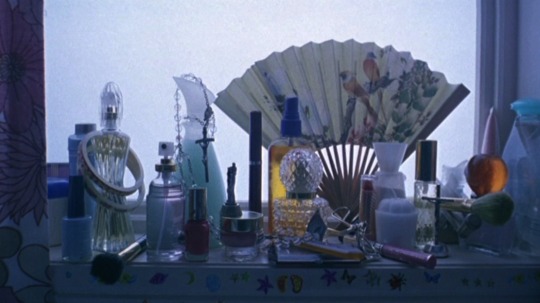
.
The film encompassed everything a teenage girl experiences, but brings a situation that isn’t exemplified in the typical coming of age film. The Lisbon girls, 13 year old Cecilia, 14 year old Lux, 15 year old Bonnie, 16 year old Mary, and 17 year old Therese, lived in a home of a scholar father, and a mother who was the obvious source of dominance and constriction in the house. The girls lived an extremely strict lifestyle, never being able to have interactions outside of their home and school life, never to dress in any manner that wasn’t conservative, and especially no romantic relations. The setting of 1970’s Michigan in an extremely tight knit neighborhood made their situation stand out from the other children in the neighborhood. Everyone knew one another, even if they had never interacted; and everyone knew the mysterious Lisbon girls. The film also visits religion quite frequently. The mother, Mrs. Lisbon, is a very high strung catholic. In many scenes, starting from the very beginning there is imagery of the Virgin Mary and sigils placed seemingly everywhere. A notable symbolic image is a card of the Virgin Mary, which we see in the opening scenes as Cecelia lays unconscious in the bathtub after her first suicide attempt. The card lies on the floor, splattered in blood. The themes associated with religion seem to be displeasure and breaking away. The theme of femininity also ties into the religious aspects. Despite the girl’s disapproval yet lack of voice upon their mother’s strictness and beliefs, every religious image is very feminized. Every time we see a rosary, or crosses, they are always surrounded by jewelry, flowers, perfume, intricate glass wear, makeup or small trinkets. The ratio to these objects is usually many feminine items with just one or two religious symbols, which displays an overpowerment that they could never express themselves. There is a profound sense of freedom the girls display, yet having no freedom at all. They are restricted by the boundaries of the religious values their mother follows, yet still embrace their girlhood and find ways to enjoy their femininity despite this.
.

.
The most profound technique I found in the film was the use of the soundtrack in accordance to each scene. For example, in this particular scene, the girls had begun to communicate with the boys through morse code; due to Lux not coming home on the night of prom, the girls were under house arrest. Lux was forced to burn all of her records, so the boys spend hours upon hours playing music through the phone for the girls. In this scene which shows a progression of the boys projecting the music overtime, and the girls listening, the song “Alone Again Naturally,” by Gilbert O’ Sullivan. Although the boys never personally knew the Lisbon girls, and had had only one interaction with them at most, there was a sense of loneliness coming from the boys as they dedicated so much time to please the girls. The girls had been granted the slightest amount of freedom to attend the dance, and because of Lux never returning home that night, they had once again returned to seclusion, but even stronger than before. In another scene, during Cecilia’s party, as she excuses herself, the song “The Air that I Breathe,” by the Hollies plays. In some sense, it acts as very ironic foreshadowing. For the entire duration of her party, Cecilia sat alone in the corner, while all of the other boys socialized with the older girls. Joe, the boy with special needs, was the only one kind enough to say hello to Cecilia and give her attention. The music abruptly stops when a sound is heard, and the father is found standing outside with Cecilia’s lifeless body impaled through a spoke in the fence.
.

.
This scene in particular occurs directly after Trip leaves the Lisbon household after spending time with Lux as the mother sat in between them. Trip goes to his car, flustered and sits back in the seat with his head back and eyes closed, visibly flustered. From his body language, you can assume that this response was due to the lust from Lux’s embraced sexuality that she displayed very quietly so no one would catch on besides Trip. Through his car window we see the upstairs middle light turn on, which we can assume to be the parent’s bedroom. The car door opens, and Lux jumps in and immediately begins to make out with Trip. At the same time, the song “Crazy on You,” by Heart plays. The dynamic in this scene has clear sexual tension, and also highlights the theme of disobedience and teenage angst. Trip knew what he was getting himself into by trying for a girl in such a reserved family, but also with the knowledge that Lux had a personality unlike her sisters. In the reading “Pleasure in Looking/ Fascination with the Human Form,” the term scopophilia is brought up, which is the pleasure of looking. In Freudian theory, humans enjoy viewing things that bring them pleasure, and the idea of voyueristic viewing enhances this pleasure further. Cinema essentially fulfills every aspect of scopophilia; we as the viewers are watching Lux and Trip has this passionate moment, and as a viewer of two subjects within a scene, there is no possible way for them to have any knowledge of this. Having insight into an intimate moment reflects upon the viewer, and you can almost relate the the sexual tension from a personal reflection of your own experiences, and from your own teenage years.
.

.
The film definitely acts as the most absurd coming of age movie you can get. In comparison to a film such as say, Sixteen Candles, there is no existential crisis that is met with a resolution that acts a life lesson. The boys are under the impression they will final have the moment they craved since the beginning of the film; to take the girls and run off and have what they imagined to be the time of their life. Instead, the girls had other plans the entire time. As the boys wait, each girl meets her demise. Bonnie was hanging, Therese overdoses on pills, and Lux is found with her fingers still clutching a cigarette, dead in the garage from carbon monoxide poisoning. If anything, the film is an anti coming of age film, yet the strong vibes of femininity and softness make the viewer feel as if it’s the complete opposite. Surely families exist as the Lisbon’s, yet the strong theme of escapism through death is hard to tell as the movie progresses.
.

.
The tile of the film itself relates back to the major theme of religion. This theme doesn’t feel so prevalent aside from the imagery, but breaking it down becomes more understandable. In Catholocism, a virgin is a figure of purity, free of sin. The Virgin Mary was a saint because she was so pure, and conceived a child while never having sex, upholding her virginity. Despite Lux losing her virginity to Trip, the girls were viewed by everyone around them as completely pure girls who were perfect from their blonde hair down to their mysterious nature. All of the sisters met their demise through suicide, Cecilia being the first and the rest through a suicide pact. The title has two contradicting topics in nature; virginity and suicide. Maybe this acts as a not so gentle reminder that absolute purity does not always equate to perfection, as the matriarch mother believed. In fact, she believed that she raised her children perfectly and never did anything wrong. The film makes you question where true happiness actually comes from. In the mind of the family, upholding perfect standards of purity and Catholic values, and sheltering the girls from anything that could harm them, was the best way. The girls always wanted freedom, even if Lux was the forefront of breaking away from her family’s expectations. In the end, there is no perfect definition of what true happiness is. Everyone will always want what they truly desire, not what others confine them to. – JA
.
https://theplaylist.net/sofia-coppola-criterion-virgin-suicides-20180502/2/
.
Mulvey, Laura. “Visual Pleasure and Narrative Cinema” [1975]. Feminist Film Theory: A Reader. Ed. Sue Thornham. New York: New York University Press, 1999. 58-69.
.
https://www.theguardian.com/film/2018/jan/25/sofia-coppola-on-the-virgin-suicides-director-debut
.
https://thedissolve.com/features/movie-of-the-week/1076-the-virgin-suicides-is-a-window-into-sofia-coppola/
6 notes
·
View notes
Text
Dead Fandoms, Part 3
Read Part One of Dead Fandoms here.
Read Part Two of Dead Fandoms here.

Before we continue, I want to add the usual caveat that I actually don’t want to be right about these fandoms being dead. I like enthusiasm and energy and it’s a shame to see it vanish.
Mists of Avalon

Remember that period of time of about 15 years, where absolutely everybody read this book and was obsessed with it? It could not have been bigger, and the fandom was Anne Rice huge, overlapping for several years with USENET and the early World Wide Web…but it’s since petered out.
Mists of Avalon’s popularity may be due to the most excellent case of hitting a demographic sweet spot ever. The book was a feminist retelling of the Arthurian Mythos where Morgan Le Fay is the main character, a pagan from matriarchal goddess religions who is fighting against encroaching Christianity and patriarchal forms of society coming in with it. Also, it made Lancelot bisexual and his conflict is how torn he is about his attraction to both Arthur and Guinevere.
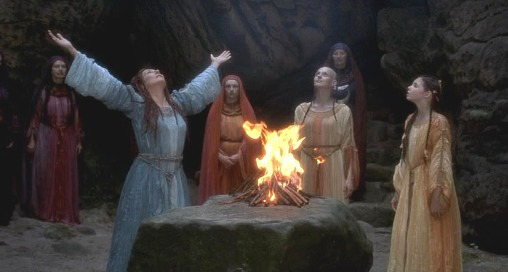
Remember, this novel came out in 1983 – talk about being ahead of your time! If it came out today, the reaction from a certain corner would be something like “it is with a heavy heart that I inform you that tumblr is at it again.”
Man, demographically speaking, that’s called “nailing it.” It used to be one of the favorite books of the kind of person who’s bookshelf is dominated by fantasy novels about outspoken, fiery-tongued redheaded women, who dream of someday moving to Scotland, who love Enya music and Kate Bush, who sell homemade needlepoint stuff on etsy, who consider their religious beliefs neo-pagan or wicca, and who have like 15 cats, three of which are named Isis, Hypatia, and Morrigan.
This type of person is still with us, so why did this novel fade in popularity? There’s actually a single hideous reason: after her death around 2001, facts came out that Marion Zimmer Bradley abused her daughters sexually. Even when she was alive, she was known for defending and enabling a known child abuser, her husband, Walter Breen. To say people see your work differently after something like this is an understatement – especially if your identity is built around being a progressive and feminist author.
Robotech

I try to break up my sections on dead fandoms into three parts: first, I explain the property, then explain why it found a devoted audience, and finally, I explain why that fan devotion and community went away. Well, in the case of Robotech, I can do all three with a single sentence: it was the first boy pilot/giant robot Japanimation series that shot for an older, teenage audience to be widely released in the West. Robotech found an audience when it was the only true anime to be widely available, and lost it when became just another import anime show. In the days of Crunchyroll, it’s really hard to explain what made Robotech so special, because it means describing a different world.
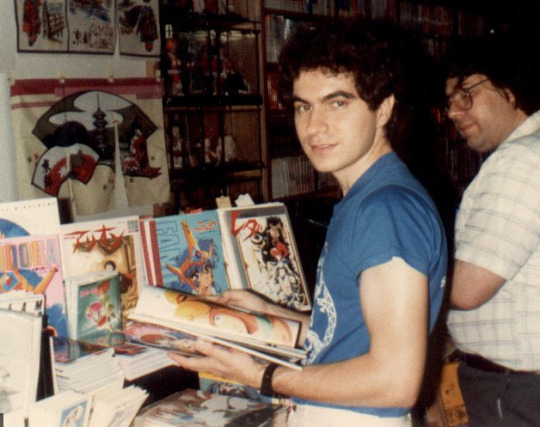
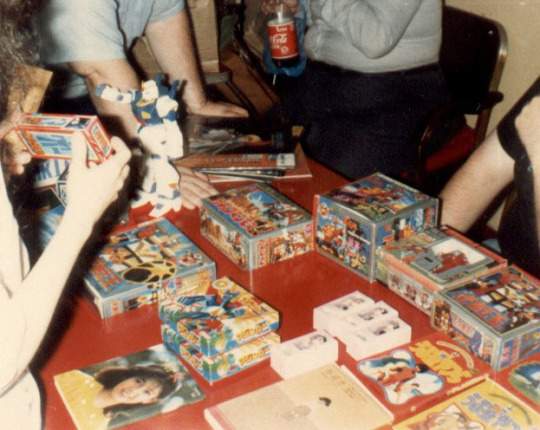
Try to imagine what it was like in 1986 for Japanime fans: there were barely any video imports, and if you wanted a series, you usually had to trade tapes at your local basement club (they were so precious they couldn’t even be sold, only traded). If you were lucky, you were given a script to translate what you were watching. Robotech though, was on every day, usually after school. You want an action figure? Well, you could buy a Robotech Valkyrie or a Minmei figure at your local corner FAO Schwartz.
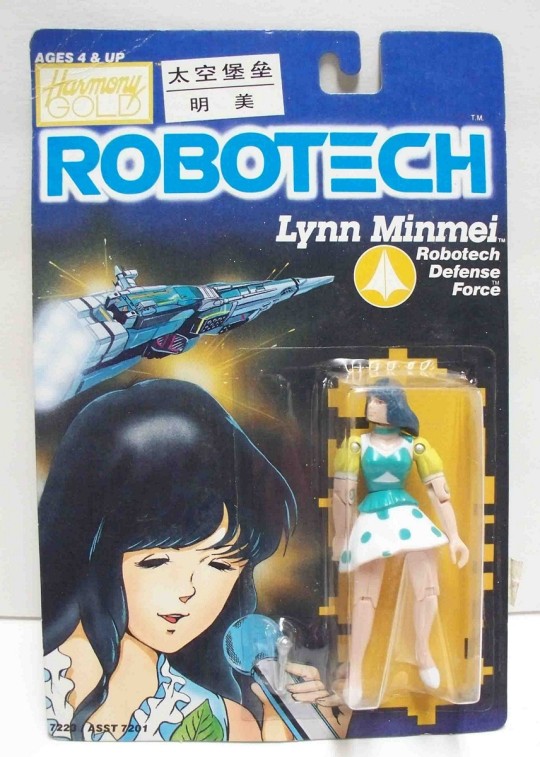
However, the very strategy that led to it getting syndicated is the very reason it was later vilified by the purists who emerged when anime became a widespread cultural force: strictly speaking, there actually is no show called “Robotech.” Since Japanese shows tend to be short run, say, 50-60 episodes, it fell well under the 80-100 episode mark needed for syndication in the US. The producer of Harmony Gold, Carl Macek, had a solution: he’d cut three unrelated but similar looking series together into one, called “Robotech.” The shows looked very similar, had similar love triangles, used similar tropes, and even had little references to each other, so the fit was natural. It led to Robotech becoming a weekday afternoon staple with a strong fandom who called themselves “Protoculture Addicts.” There were conventions entirely devoted to Robotech. The supposed shower scene where Minmei was bare-breasted was the barely whispered stuff of pervert legend in pre-internet days. And the tie in novels, written with the entirely western/Harmony Gold conception of the series and which continued the story, were actually surprisingly readable.
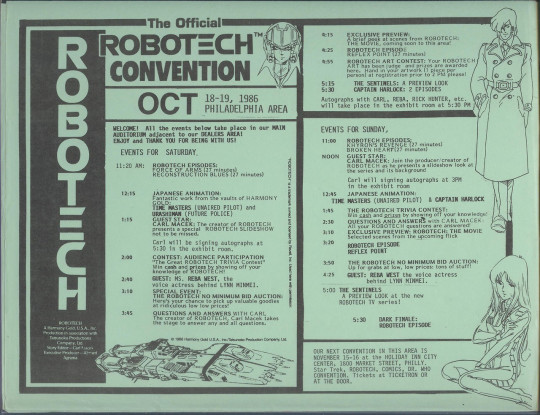
The final nail in the coffin of Robotech fandom was the rise of Sailor Moon, Toonami, Dragonball, and yes, Pokemon (like MC Hammer’s role in popularizing hip hop, Pokemon is often written out of its role in creating an audience for the next wave of cartoon imports out of insecurity). Anime popularity in the West can be defined as not a continuing unbroken chain like scifi book fandom is, but as an unrelated series of waves, like multiple ancient ruins buried on top of each other (Robotech was the vanguard of the third wave, as Anime historians reckon); Robotech’s wave was subsumed by the next, which had different priorities and different “core texts.” Pikachu did what the Zentraedi and Invid couldn’t do: they destroyed the SDF-1.
Legion of Super-Heroes
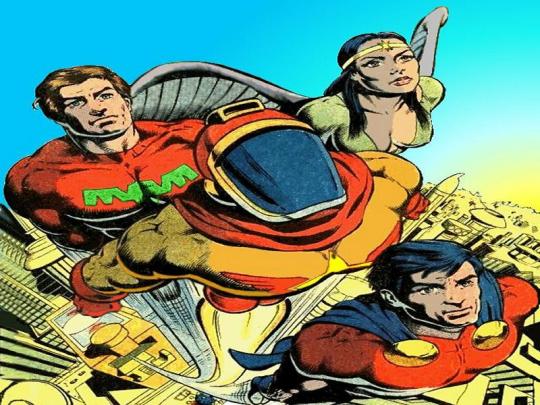
Legion of Superheroes was comic set in the distant future that combined superheroes with space opera, with a visual aesthetic that can best be described as “Star Trek: the Motion Picture, if it was set in a disco.”
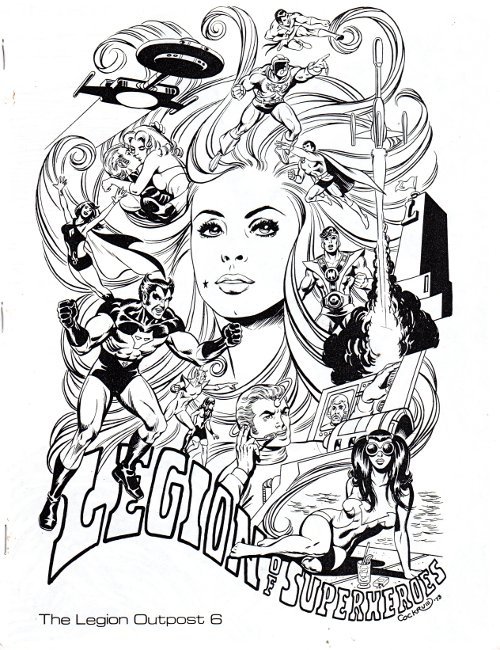
I’ve heard wrestling described as “a soap opera for men.” If that’s the case, then Legion of Super-Heroes was a soap opera for nerds. The book is about attractive 20-somethings who seem to hook up all the time. As a result, it had a large female fanbase, which, I cannot stress enough, is incredibly unusual for this era in comics history. And if you have female fans, you get a lot of shipping and slashfic, and lots of speculation over which of the boy characters in the series is gay. The fanon answer is Element Lad, because he wore magenta-pink and never had a girlfriend. (Can’t argue with bulletproof logic like that.) In other words, it was a 1970s-80s fandom that felt much more “modern” than the more right-brained, bloodless, often anal scifi fandoms that existed around the same time, where letters pages were just nitpicking science errors by model train and elevator enthusiasts.
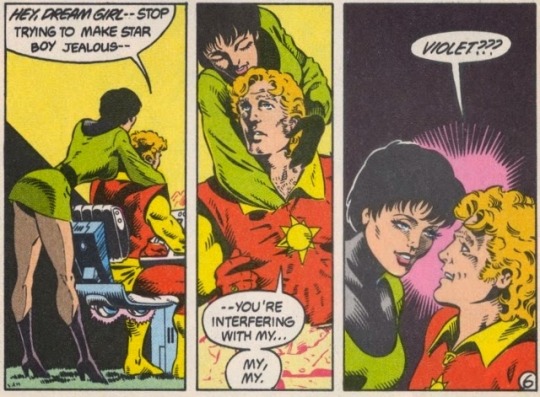
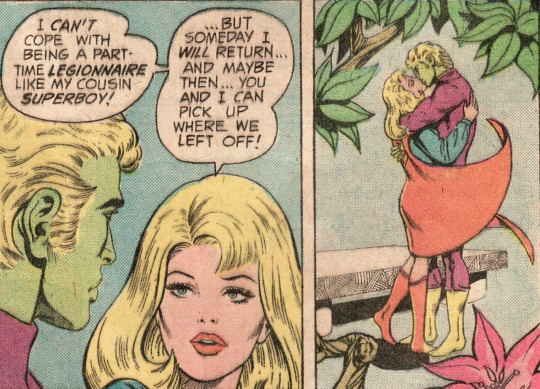
Legion Headquarters seemed to be a rabbit fuck den built around a supercomputer and Danger Room. Cosmic Boy dressed like Tim Curry in Rocky Horror. There’s one member, Duo Damsel, who can turn into two people, a power that, in the words of Legion writer Jim Shooter, was “useful for weird sex...and not much else.”
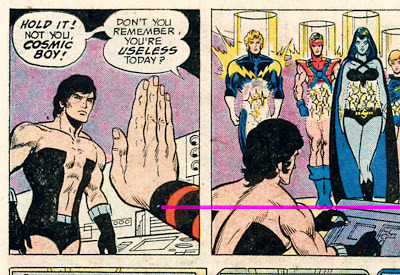
LSH was popular because the fans were insanely horny. This is, beyond the shadow of a doubt, the thirstiest fandom of all time. You might think I’m overselling this, but I really think that’s an under-analyzed part of how some kinds of fiction build a devoted fanbase.
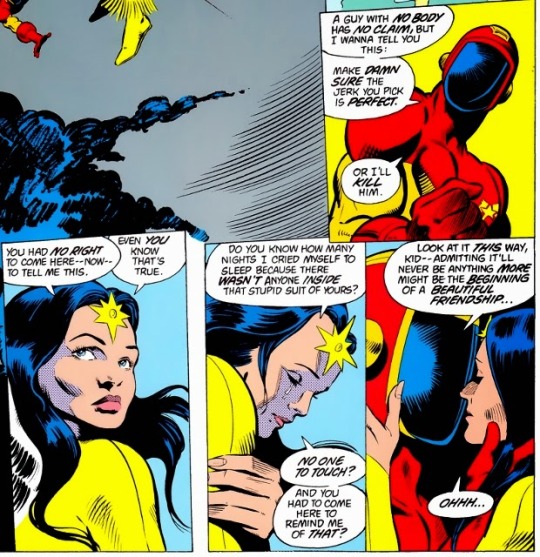
For example, a big reason for the success of Mass Effect is that everyone has a favorite girl or boy, and you have the option to romance them. Likewise, everyone who was a fan of Legion remembers having a crush. Sardonic Ultra Boy for some reason was a favorite among gay male nerds (aka the Robert Conrad Effect). Tall, blonde, amazonian telepath Saturn Girl, maybe the first female team leader in comics history, is for the guys with backbone who prefer Veronica over Betty. Shrinking Violet was a cute Audrey Hepburn type. And don’t forget Shadow Lass, who was a blue skinned alien babe with pointed ears and is heavily implied to have an accent (she was Aayla Secura before Aayla Secura was Aayla Secura). Light Lass was commonly believed to be “coded lesbian” because of a short haircut and her relationships with men didn’t work out. The point is, it’s one thing to read about the adventures of a superteam, and it implies a totally different level of mental and emotional involvement to read the adventures of your imaginary girlfriend/boyfriend.
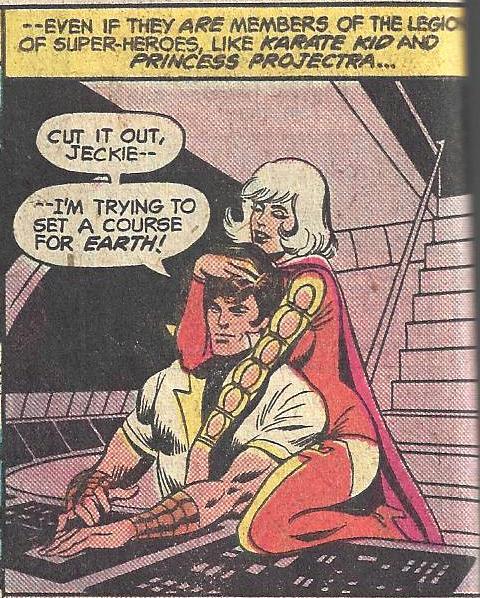
Now, I should point out that of all the fandoms I’ve examined here, LSH was maybe the smallest. Legion was never a top seller, but it was a favorite of the most devoted of fans who kept it alive all through the seventies and eighties with an energy and intensity disproportionate to their actual numbers. My gosh, were LSH fans devoted! Interlac and Legion Outpost were two Legion fanzines that are some of the most famous fanzines in comics history.
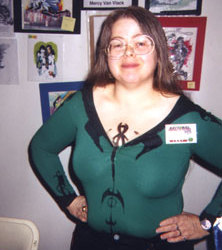
If nerd culture fandoms were drugs, Star Wars would be alcohol, Doctor Who would be weed, but Legion of Super-Heroes would be injecting heroin directly into your eyeballs. Maybe it is because the Legionnaires were nerdy, too: they played Dungeons and Dragons in their off time (an escape, no doubt, from their humdrum, mundane lives as galaxy-rescuing superheroes). There were sometimes call outs to Monty Python. Basically, the whole thing had a feel like the dorkily earnest skits or filk-singing at a con. Legion felt like it’s own fan series, guest starring Patton Oswalt and Felicia Day.
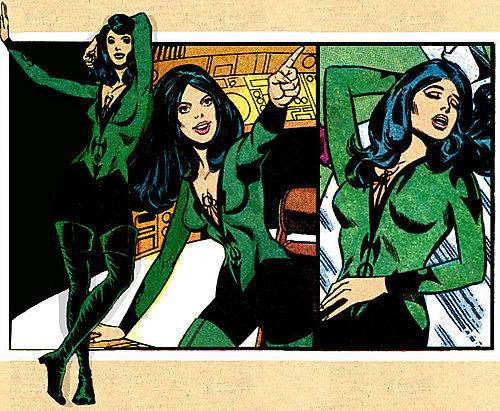
It helped that the boundary between fandom and professional was incredibly porous. For instance, pro-artist Dave Cockrum did covers for Legion fanzines. Former Legion APA members Todd and Mary Biernbaum got a chance to actually write Legion, where, with the gusto of former slashfic writers given the keys to canon, their major contribution was a subplot that explicitly made Element Lad gay. Mike Grell, a professional artist who got paid to work on the series, did vaguely porno-ish fan art. Again, it’s hard to tell where the pros started and the fandom ended; the inmates were running the asylum.
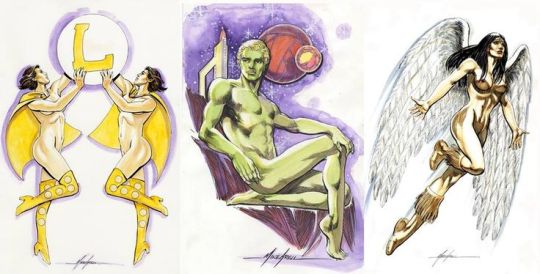
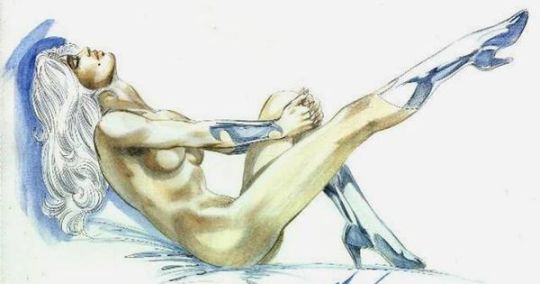
Mostly, Legion earned this devotion because it could reward it in a way no other comic could. Because Legion was not a wide market comic but was bought by a core audience, after a point, there were no self-contained one-and-done Legion stories. In fact, there weren’t even really arcs as we know it, which is why Legion always has problems getting reprinted in trade form. Legion was plotted like a daytime soap opera: there were always five different stories going on in every issue, and a comic involved cutting between them. Sure, like daytime soap operas, there’s never a beginning, just endless middles, so it was totally impossible for a newbie to jump on board...but soap operas know what they are doing: long term storytelling rewards a long term reader.
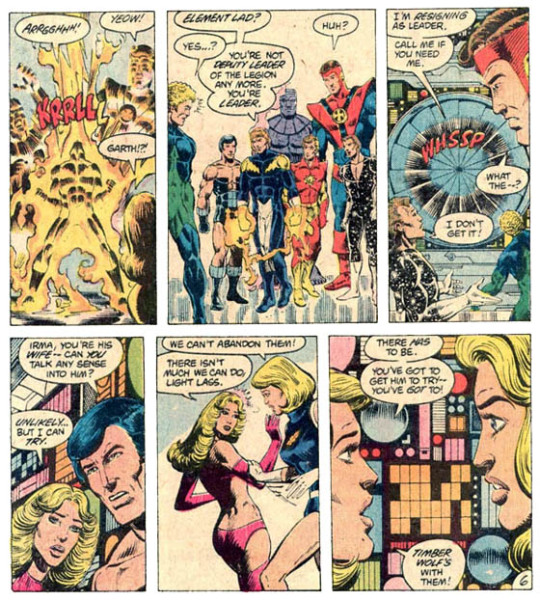
This brings me to today, where Legion is no longer being published by DC. There is no discussion about a movie or TV revival. This is amazing. Comics are a world where the tiniest nerd groups get pandered to: Micronauts, Weirdworld, Seeker 3000, and Rom have had revival series, for pete’s sake. It’s incredible there’s no discussion of a film or TV treatment, either; friggin Cyborg from New Teen Titans is getting a solo movie.
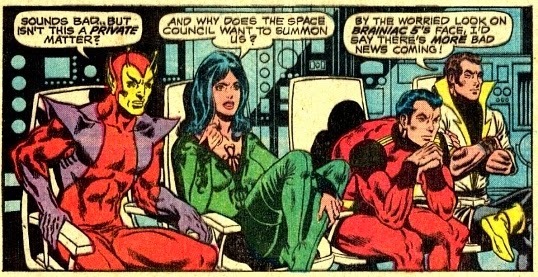
Why did Legion stop being such a big deal? Where did the fandom that supported it dissolve to? One word: X-Men. Legion was incredibly ahead of its time. In the 60s and 70s, there were barely any “fan” comics, since superhero comics were like animation is today: mostly aimed at kids, with a minority of discerning adult/teen fans, and it was success among kids, not fans, that led to something being a top seller (hence, “fan favorites” in the 1970s, as surprising as it is to us today, often did not get a lot of work, like Don MacGregor or Barry Smith). But as newsstands started to push comics out, the fan audience started to get bigger and more important…everyone else started to catch up to the things that made Legion unique: most comics started to have attractive people who paired up into couples and/or love triangles, and featured extremely byzantine long term storytelling. If Legion of Super-Heroes is going to be remembered for anything, it’s for being the smaller scale “John the Baptist” to the phenomenon of X-Men, the ultimate “fan” comic.
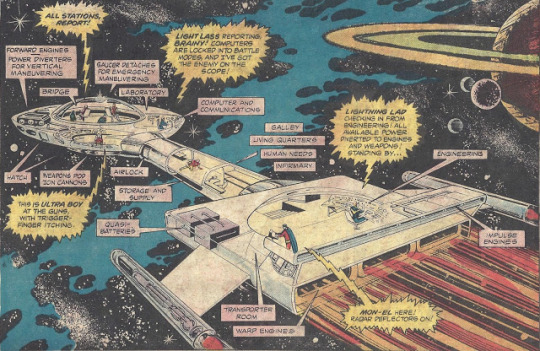
The other thing that killed Legion, apart from Marvel’s Merry Mutants, that is, was the r-word: reboots. A reboot only works for some properties, but not others. You reboot something when you want to find something for a mass audience to respond to, like with Zorro, Batman, or Godzilla.
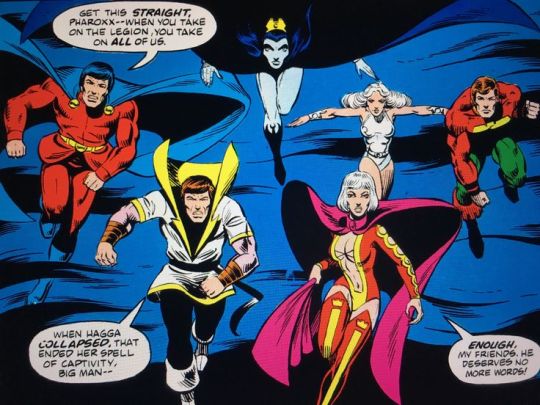
Legion, though, was not a comic for everybody, it was a fanboy/girl comic beloved by a niche who read it for continuing stories and minutiae (and to jack off, and in some cases, jill off). Rebooting a comic like that is a bad idea. You do not reboot something where the main way you engage with the property, the greatest strength, is the accumulated lore and history. Rebooting a property like that means losing the reason people like it, and unless it’s something with a wide audience, you only lose fans and won’t get anything in return for it. So for something like Legion (small fandom obsessed with long form plots and details, but unlike Trek, no name recognition) a reboot is the ultimate Achilles heel that shatters everything, a self-destruct button they kept hitting over and over and over until there was nothing at all left.
E. E. Smith’s Lensman Novels
The Lensman series is like Gil Evans’s jazz: it’s your grandparents’ favorite thing that you’ve never heard of.

I mean, have you ever wondered exactly what scifi fandom talked about before the rise of the major core texts and cultural objects (Star Trek, Asimov, etc)? Well, it was this. Lensmen was the subject of fanfiction mailed in manilla envelopes during the 30s, 40s, and 50s (some of which are still around). If you’re from Boston, you might recognize that the two biggest and oldest scifi cons there going back to the 1940s, Boskone (Boscon, get it?) and Arisia, are references to the Lensman series. This series not only created space opera as we know it, but contributed two of the biggest visuals in scifi, the interstellar police drawn from different alien species, and space marines in power armor.
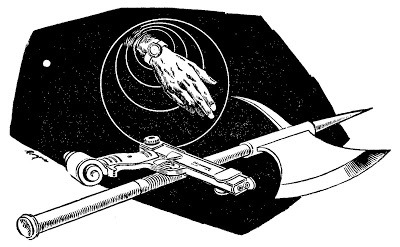
My favorite sign of how big this series was and how fans responded to it, was a great wedding held at Worldcon that duplicated Kimball Kinnison and Clarissa’s wedding on Klovia. This is adorable:
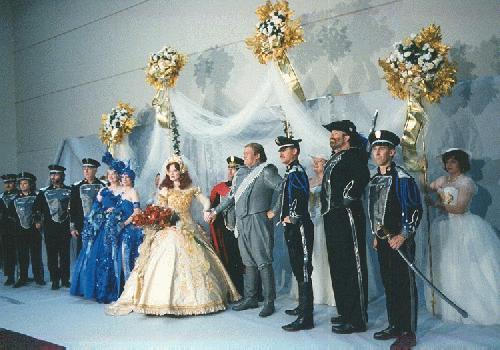
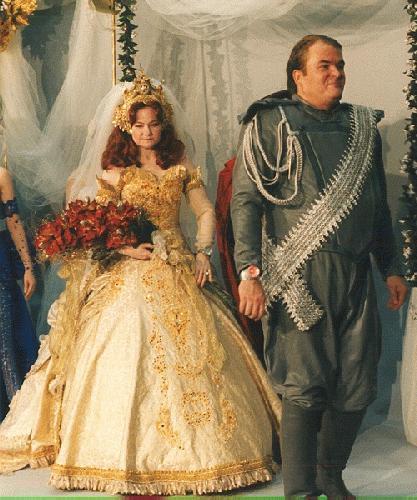
The basic story is pure good vs. evil: galactic civilization faces a crime and piracy wave of unprecedented proportions from technologically advanced pirates (the memory of Prohibition, where criminals had superior firearms and faster cars than the cops, was strong by the mid-1930s). A young officer, Kimball Kinnison (who speaks in a Stan Lee esque style of dialogue known as “mid-century American wiseass”), graduates the academy and is granted a Lens, an object from an ancient mystery civilization, who’s true purpose is unknown.
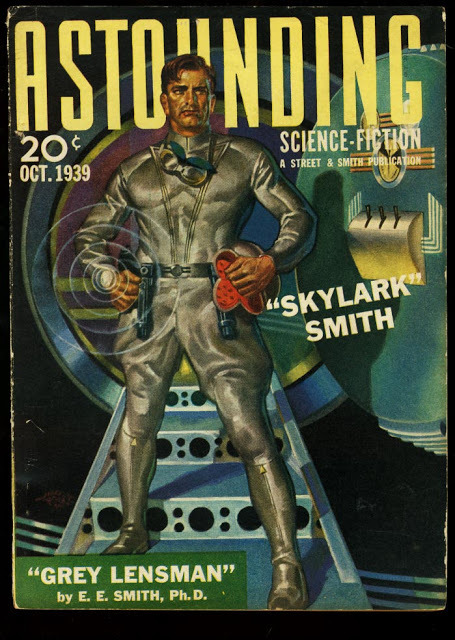
Lensman Kinnison discovers that the “crime wave” is actually a hostile invasion and assault by a totally alien culture that is based on hierarchy, intolerant of failure, and at the highest level, is ruled by horrifying nightmare things that breathe freezing poison gases. Along the way, he picks up allies, like van Buskirk, a variant human space marine from a heavy gravity planet who can do a standing jump of 20 feet in full space armor, Worsel, a telepathic dragon warrior scientist with the technical improvisation skills of MacGyver (who reads like the most sadistically minmaxed munchkinized RPG character of all time), and Nandreck, a psychologist from a Pluto-like planet of selfish cowards.
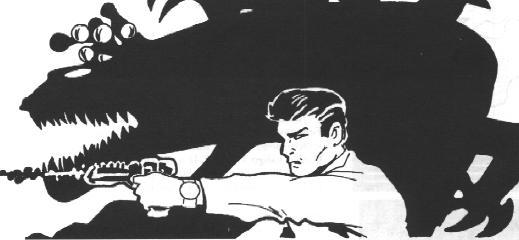
The scale of the conflict starts small, just skirmishes with pirates, but explodes to near apocalyptic dimensions. This series has space battles with millions of starships emerging from hyperspacial tubes to attack the ultragood Arisians, homeworld of the first intelligent race in the cosmos. By the end of the fourth book, there are mind battles where the reflected and parried mental beams leave hundreds of innocent bystanders dead. In the meantime we get evil Black Lensmen, the Hell Hole in Space, and superweapons like the Negasphere and the Sunbeam, where an entire solar system was turned into a vacuum tube.
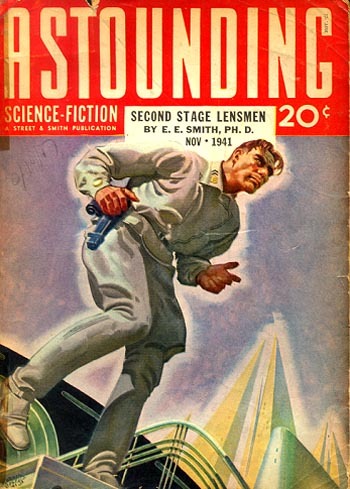
It’s not hard to understand why Lensmen faded in importance. While the alien Lensmen had lively psychologies, Lensman Kimball Kinnison was not an interesting person, and that’s a problem when scifi starts to become more about characterization. The Lensman books, with their love of police and their sexism (it is an explicit plot point that the Lens is incompatible with female minds – in canon there are no female Lensmen) led to it being judged harshly by the New Wave writers of the 1960s, who viewed it all as borderline fascist military-scifi establishment hokum, and the reputation of the series never recovered from the spirit of that decade.
Prisoner of Zenda
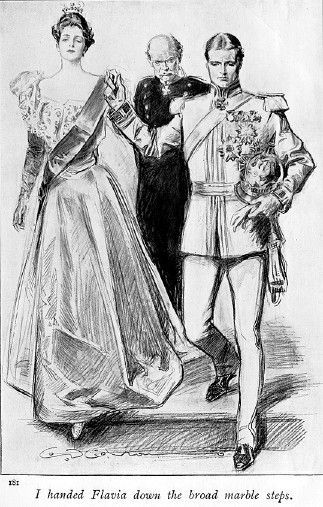
Prisoner of Zenda is a novel about a roguish con-man who visits a postage-stamp, charmingly picturesque Central European kingdom with storybook castles, where he finds he looks just like the local king and is forced to pose as him in palace intrigues. It’s a swashbuckling story about mistaken identity, swordfighting, and intrigue, one part swashbuckler and one part dark political thriller.
The popularity of this book predates organized fandom as we know it, so I wonder if “fandom” is even the right word to use. All the same, it inspired fanatical dedication from readers. There was such a popular hunger for it that an entire library could be filled with nothing but rip-offs of Prisoner of Zenda. If you have a favorite writer who was active between 1900-1950, I guarantee he probably wrote at least one Prisoner of Zenda rip-off (which is nearly always the least-read book in his oeuvre). The only novel in the 20th Century that inspired more imitators was Sherlock Holmes. Robert Heinlein and Edmond “Planet Smasher” Hamilton wrote scifi updates of Prisoner of Zenda. Doctor Who lifted the plot wholesale for the Tom Baker era episode, “Androids of Tara,” Futurama did this exact plot too, and even Marvel Comics has its own copy of Ruritania, Doctor Doom’s Kingdom of Latveria. Even as late as the 1980s, every kids’ cartoon did a “Prisoner of Zenda” episode, one of the stock plots alongside “everyone gets hit by a shrink ray” and the Christmas Carol episode.
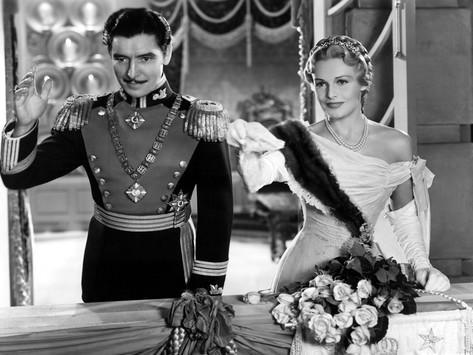
Prisoner of Zenda imitators were so numerous, that they even have their own Library of Congress sub-heading, of “Ruritanian Romance.”
One major reason that Prisoner of Zenda fandom died off is that, between World War I and World War II, there was a brutal lack of sympathy for anything that seemed slightly German, and it seems the incredibly Central European Prisoner of Zenda was a casualty of this. Far and away, the largest immigrant group in the United States through the entire 19th Century were Germans, who were more numerous than Irish or Italians. There were entire cities in the Midwest that were two-thirds German-born or German-descent, who met in Biergartens and German community centers that now no longer exist.
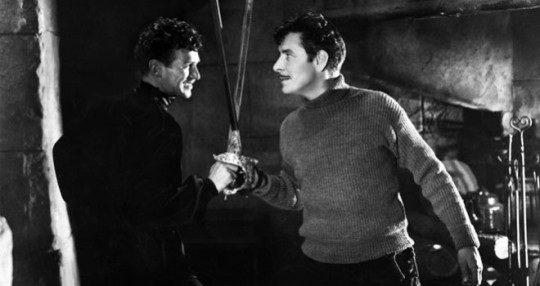
Kurt Vonnegut wrote a lot about how the German-American world he grew up in vanished because of the prejudice of the World Wars, and that disappearance was so extensive that it was retroactive, like someone did a DC comic-style continuity reboot where it all never happened: Germans, despite being the largest immigrant group in US history, are left out of the immigrant story. The “Little Bohemias” and “Little Berlins” that were once everywhere no longer exist. There is no holiday dedicated to people of German ancestry in the US, the way the Irish have St. Patrick’s Day or Italians have Columbus Day (there is Von Steuben’s Day, dedicated to a general who fought with George Washington, but it’s a strictly Midwest thing most people outside the region have never heard of, like Sweetest Day). If you’re reading this and you’re an academic, and you’re not sure what to do your dissertation on, try writing about the German-American immigrant world of the 19th and 20th Centuries, because it’s a criminally under-researched topic.
A. Merritt
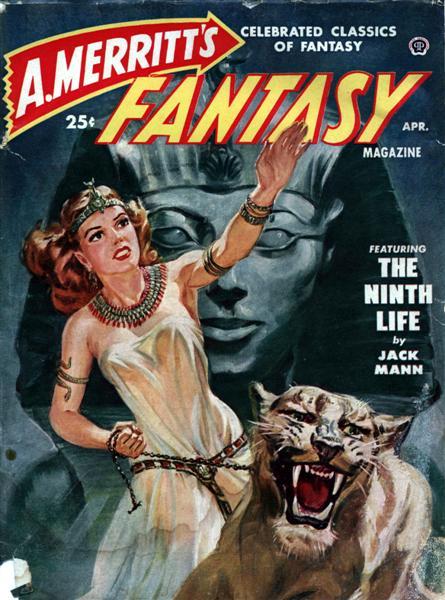
Pop quiz: who was the most popular and influential fantasy author during the 1930s and 40s?
If you answered Tolkien or Robert E. Howard, you’re wrong - it was actually Abraham Merritt. He was the most popular writer of his age of the kind of fiction he did, and he’s since been mostly forgotten. Gary Gygax, creator of Dungeons and Dragons, has said that A. Merritt was his favorite fantasy and horror novelist.
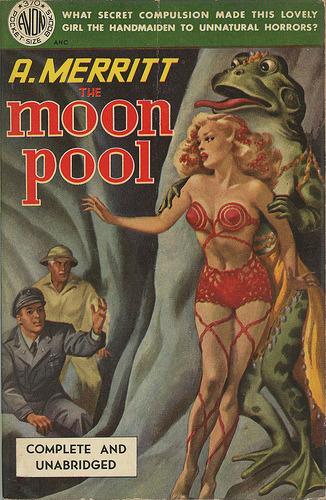
Why did A. Merritt and his fandom go away, when at one point, he was THE fantasy author? Well, obviously one big answer was the 1960s counterculture, which brought different writers like Tolkien and Lovecraft to the forefront (by modern standards Lovecraft isn’t a fantasy author, but he was produced by the same early century genre-fluid effluvium that produced Merritt and the rest). The other answer is that A. Merritt was so totally a product of the weird occult speculation of his age that it’s hard to even imagine him clicking with audiences in other eras. His work is based on fringe weirdness that appealed to early 20th Century spiritualism and made sense at the time: reincarnation, racial memory, an obsession with lost race stories and the stone age, and weirdness like the 1920s belief that the Polar Arctic is the ancestral home of the Caucasian race. In other words, it’s impossible to explain Merritt without a ton of sentences that start with “well, people in the 1920s thought that...” That’s not a good sign when it comes to his universality.
That’s it for now. Do you have any suggestions on a dead fandom, or do you keep one of these “dead” fandoms alive in your heart?
3K notes
·
View notes
Text
(s/t/e/v/e/n u/n/i/v/e/r/s/e b/o/m/b 5 spoilers and related feelings ahead; random followers / post-Likers will be blocked on sight unless you tell me why you’re here.)
....the Lapis Laz’i part of me is actually very jealous of Amethyst. Bitterly. Like, would-cry-if-I-wasn’t-in-this-world-and-this-body-now. (Crying is a bad idea with this faulty human body and brain.)
Heart and soul don’t seem to acknowledge those boundaries, though. And I am still supremely jealous, as of the Zoo events/plotline. Because...
...”Famethyst for life”.
I don’t have a family like that. I hardly even had FRIENDS like that!
And whoever I had then: I certainly don’t have NOW.
I left, I got lost, I got scared, and then I just never came back. And then I couldn’t if I’d really wanted to, because I’ve never been good with directions, and I missed the time I was supposed to go back somehow. Like those kids who live in abusive homes and run away from school because they’re pregnant, or their report card is bad. Except, I can’t run back.
Seeing the Earth quartzes protecting each other and playing around and generally being a family just brought up a LOT of feelings I hardly knew were there-- sure, I knew i felt DISPLACED. and guilty. and lost.
But now...
...oh, fuck.
It just... made me remember. So many things I’d like to have, so many things I can’t.
I didn’t DEFECT, not exactly-- but I ran.
Nexus nonsense is making it.... very, very strange. (Rose was the first thing I saw, in that meditation vision, that made me wonder if there was Something More to this obsession with the IDEA of *a* Lapis, as a Gem species, every bit as much as her character /plot /personality. I think, with the Nexus stuff, she’s kind of acting as my... not really conduit. but.... conductor? Opening the passage? And that bright fucking existence-encompassing white physical crystalline light was FORMATION. i was experiencing a form of “birth”.)
(( nts: i have to find that post where I had an inkling of an idea of why she wanted to contact me. it was after Gem Drill. RIGHT after. with the shards....... i had an Insight on why she contacted ME, and I need to tie this together;; ))
...anyways. feelings.....
Space is pretty, and all. But it’s also so LONELY. So isolating. Especially when you’re alone.
And I think that’s most of what I am there.
Alone...
....always been a bit of a hermit and a bit weaker, less than expected, less than confident, less than capable, less than I ever should have been.
But being relieved of all that failure came with a huge chunk of loneliness, too.
And now.....
....this is the reason that this song that I used to find so empowering, is now cripplingly depressing. (By an underground DJ in Florida; I doubt many of the followers here have ever heard it....)
--> https://soundcloud.com/vult_cult/never-coming-back-alex-dalliance
“It feels; surrounds me. I know, I’m never coming back. It calls; she’s in everything. I know, I’m never coming back...”
(...and... I’m not entirely sure. But I think, that, because of my own fear, my lack of confidence? I was abandoned. I hesitated, and they didn’t wait. I theorize, for now, that it might’ve been near the beginnings of when the rebellion Went War, because I think I’d heard about... stirrings. Unaware of the war; Pink’s Death doesn’t feel like something I knew about. Or maybe I just didn’t care. But I’m trying to rationalize vague feelings now, and I think it might have been because of resource shortage? They needed to leave; I wasn’t worth waiting on.)
Oh. And the “she”, that I relate this song to... Blue Diamond. Blue Diamond. She was like an idol, well really more of a big sister, a sort of mother role. I don’t think she was ever my actual mother, in any caring way... but like an absentee mother. Protective of us, and so loyal to us every bit as much as we were loyal to her. SHE, at least, had never threatened to shatter me. I miss her so much it physically aches. Not just “My Diamond”. MY Diamond. And of COURSE i longed to see her more often. I don’t think she ever had much to say. But it was important, when she did. I loved it. I bathed in it. I wanted to be with her, earn her praise, support her mission. She wasn’t just my boss; she felt like my family. Matriarch.
i miss her so badly, i fucking sympathize with JASPER. and THAT kind of stings to admit.
But....
...gods. i certainly lost contact with her. but it’s not like Gems are short-lived. I don’t know that I’ve lost her FOREVER. She’s still THERE. Just, not HERE. i couldn’t imagine knowing, that i’d never, ever be able to see her again..............
still....
....the ache is deep.
(writing this helped, a little.... i needed to get this out before i go to work. and now i only have ten minutes to get ready... ;;;; oops. well worth it to record this. the glimpses fade far too quickly....)
1 note
·
View note
Text
“Young, Widowed, Sisters-In-Law” based on Ruth 1
Life didn't go well for Naomi. I mean, it didn't go terribly to begin with: she married, she had two sons. Compared to most heroines of the Bible, that's saying something! She didn't go through the long barren years we're used to hearing about with the matriarchs.
We don't know how her marriage was, but we usually don't. She got married, she had two sons. All that is OK, good even. If feminine expectation was fulfilled in the procreation of sons, she was successful. Then there was a famine. For ancient Israel that really meant that there was a drought, and food couldn't be grown. In response to that desperation, Naomi and family left their homeland and went in search of place where there was food.
They ended up in the land of Moab, east of the Dead Sea. The book of Genesis tells us that Moab was Lot's son/grandson. I find it interesting that the Bible always identifies enemies as extended family. Throughout much of ancient Israelite history the Moabites were on the opposing sides of wars. Today the land that was called Moab is a part of the nation Jordan, and the boundary lines still run down the middle of the Dead Sea.
Naomi was a refugee, forced to leave her country because of lack of water. This was in the era before climate change, there are many more people in her situation today than there were then.
In ancient Israel, Naomi's family had access to their own land. They were farmers. Things were so desperate that they left the land they had, that they freely owned, so that he could be a day laborer in a foreign land, because they thought it was more likely that they'd survive the lack of water THAT way. Since this story predates currency, I suspect they left their country without any wealth, with just the clothing on their back and maybe a few farm tools. They were desperate, hungry people, trying to survive when the land they lived in couldn't provide for the people who lived on it.
It seems likely that they lived a live of poverty in Moab. It seems like there WAS enough food, or at least enough MORE food that it was worth stopping there. I'm not entirely convinced there was fully enough food, since we aren't told how all the men die, and malnutrition is an open option. Ancient Israel had some laws in place to minimize the hunger of foreigners, but I don't know if Moab did. Most likely Naomi's husband and sons were day laborers, struggling to make enough for the family to eat day by day.
I point this out, in part, because I want to acknowledge that Ruth and Orpah were likely also from very poor families, because I can't imagine that any family with any sustainable income would have married their daughters off to an impoverished refugee family. (This was not a time when marriages happened because of love.) And Ruth and Naomi WERE married into this family. They were also married into this NUCLEAR family, when that wasn't the norm yet either, and when that would have been a reason to distrust the foreigners further.
Now, as we all know, poverty and wealth do not define happiness. There are very happy, healthy families who live in poverty and very sad, mad, and dysfunctional families who have great wealth. In fact, studies say that money only increases happiness when it makes the difference between being homeless and hungry and being terribly housed and having just enough to eat (even if it isn't that good). After the point when there is housing and food, money doesn't increase happiness. (Though I do wonder if it decreases stress.)
I'm proposing that Ruth and Orpah likely came from families in poverty. We don't know if they came from healthy, happy, loving homes. They seem especially fond of Naomi and well bonded to her. It makes me wonder if she'd been kinder to them than others in their life had been.
On the other hand, perhaps they were just following convention. It is hard to know. The convention at that is defined by levirate marriage. That is, if a married man died before producing an heir, his brother would be responsible for marrying his wife and thereby producing the heir. With both brothers dead, this was a problem. The women were still bound to the family they'd married into, but no spouse was forthcoming. In those days the most vulnerable people in society were the ones who didn't have a NATIVE male to take care of them, including by making a living. The Hebrew Bible of speaks of the vulnerable in society as the widows, orphans, and foreigners – with a note that an orphan was a person without a FATHER. These were the ones for whom special laws existed as protection. All groups of people without a native male who had power in the system and access to land in Israel.
These women qualified. All they had was each other, and none of them had a path to care for themselves much less the others.
Naomi frees the younger women from their bonds to her. I suspect that couldn't really be done without a man doing it, so it sort of didn't count, but they didn't have any men around to do it. I wonder if her lack of authority in the system is part of why Ruth felt she had the freedom to disobey Naomi's instructions.
In any case, both Ruth and Orpah, who made opposite decisions, were disobeying the rules of society. Society didn't have a way to care for them at this level of brokenness. Oprah abandoned the family she'd married into. Ruth disobeyed her elder. They both broke the rules, because there wasn't a way forward within the rules.
Naomi had one what was expected. She'd married and procreated, and then she'd gone with her family to seek enough food to survive, she'd grieved for her husband and children. Her choices were, seemingly, exhausted. Either she could stay in a foreign land with NO ONE to take care of her or she could go home and HOPE that someone still lived who might take responsibility for caring for her. Or, if not, she would at least die at home. She decided to go home.
That left her daughters-in-law to either abandon her (presumably the only family they still had from their so-called adulthood) or their country of origin and all they'd ever known. They seem to genuinely like, to want to stay with her. Maybe I'm missing cultural memos, but it FEELS like they want to stay with her. This mother-in-law had been good enough to them that they wanted to stay with her rather than return to their own mothers' homes.
We don't know why, and while I could project things, they wouldn't be accurate. But they both said they wanted to go. It was only after Naomi pointed out that staying with her likely meant a life of barrenness without any hope for the future that Orpah reluctantly returned to her family of origin.
We don't know what happened next for Orpah. She's never mentioned again. I don't think anyone would have had a way to know. Perhaps she returned to her mother's house and quickly found a new husband and lived a pretty normal life. Perhaps she was tainted by her first marriage to a foreigner and lived and died a widow. Maybe life changed for her and she had a taste of existence beyond hard work and poverty, although it isn't very likely. In that moment, standing on the road that returned Naomi to Judah, Orpah had no way of knowing how it would end either. She had two terrible choices before her and she picked one, hoping that it would work out.
So did Ruth. She decides to leave family, country, language, culture, and even her faith to follow her mother-in-law to a foreign land. I've often used this text at weddings because it comes from a woman freed to make her own choice, and in that freedom she chooses to bond her life to another's.
“Where you go, I will go;
where you lodge, I will lodge;
your people shall be my people,
and your God my God.
17 Where you die, I will die—
there will I be buried.”
With the saying of those words her life changes. She becomes an immigrant, and enters Israel as a foreigner and a widow. She doesn't have a reason to expect that she'll find anything easier there, and many things will be harder. Yet, it seems clear, she genuinely loves Naomi and wants to spend her life bonded to Naomi's life.
The book goes on to tell Ruth and Naomi's story, and presents Ruth as a heroine and matriarch of the Davidic line. It seems to suggest that Ruth “choose correctly” but I don't think that conclusion is sustained by the story. These three women were stuck without a clear way forward, with good reason to worry about how long they could live. Each made the best choice she could given the knowledge she had, and given the constraints of her world. I don't think the story would have ended as well if all three went back to Israel, it would have been harder to feed three mouths. I don't think it would have ended as well if only Naomi had returned home, I don't think anyone would have noticed or cared about her. The story ends with a male relative noticing Ruth and deciding to care for them both. What happens when there isn't one?
This story acknowledges the struggles of women without male support in patriarchal systems, it points out the vulnerability of women dependent on men, and makes clear that women end up making impossible decisions to survive – even ones others might want to judge. The story assumes that refugees and immigrants are more vulnerable than natives in their own lands. It also makes it clear that some people have WAY more power than others – that without a native male to care for them, the women had no legal recourse nor means of survival. The story also points out, clearly, that without water, people can't survive. The changing weather patterns of the world are creating more and more Naomis.
The world today has more displaced people than it ever has before. Climate scientists tell us that this is a number that will keep rising. Until we can hear Naomi, Ruth, and Orpah's stories as universal, we may miss the plight of many of God's children. Can we imagine Naomi as a refugee from Yemen today, because of the drought there? Can we imagine Ruth walking “home” with Naomi across the desert to start a new life in a unfriendly foreign land? Can we hear in them refugees from Syria, Somalia, or South Sudan?
I suspect God can hear the echoes. This story speaks through the ages of the difficult choices vulnerable people, particularly refugees and immigrants, make to survive. It reminds us to pay attention to who in our society and world lack access to the means of survival and/or justice.
May we be brave enough to keep listening. Amen
--
Rev. Sara E. Baron
First United Methodist Church of Schenectady
603 State St. Schenectady, NY 12305
Pronouns: she/her/hers
http://fumcschenectady.org/
https://www.facebook.com/FUMCSchenectady
June 11, 2017
#FUMC Schenectady#Thinking Church#progressive christianity#Rev Sara E Baron#Ruth#Naomi#Orpah#Orpah not Oprah#Subversive Women of the Bible Sermon Series#UMC#Schenectady#Pride#Immigration#Refugees#Listen#Echoes#Climate Justice#Displacement#Widows Orphans And Foreigners
0 notes